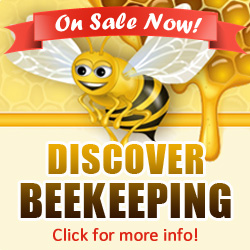Imagine life for a minute without bees; no beans, squash, tomatoes, onions, corn, and carrots to eat, not to mention hundreds of other vegetables that are dependent upon bees for pollination. Nothing happens in the vegetable garden without pollination! How about all the fruit we have come to love and think we couldn’t do without? Fruits are as essential for nutrition in our diet, as are vegetables! Even livestock are dependent upon bee-pollinated forage plants, such as clover and alfalfa. No human ingenuity could ever replace the work of bees and yet we take it largely for granted. The typical
gardener may not realize how easy it is to help or hinder their effectiveness as crop pollinators, nor how much is lost by their loss.
Maybe you have a vegetable garden and it is not producing like it should. Have you searched for an answer as to why? Have you considered the possibility that because of your use of chemical insecticides, you have inadvertently driven away your friendly gardener, the bee? By definition, chemicals are harmful but individual products vary in their toxicity to bees. Some pesticides kill quickly, others kill slowly. If you have sprayed your plants with a chemical and a bee comes along to pollinate it, the bee can carry the contaminated pollen back to the colony where it enters the food chain, killing hundreds more! And that is how we are slowly killing out the invironment-friendly bee. If you do have to treat your plants, do so in the evening when bees are not actively gathering nectar. It greatly minimizes the risk of harming them.
It is my firm belief that if we don’t turn around this over-use of chemicals we may one day wake up and wonder what has become of the honey bee. You would do your bee colony a huge favor by limiting the use of chemicals in your garden, (if you have one), and in your orchard. There are so many alternative pest control options available now-adays, that I find it hard to beleive we keep on using chemicals. Maybe many of you are not aware of the harm it does to bees. As they go from flower to flower gathering nectar, they pick up the harmful sprays as well, that were used to eliminate the bad bugs, ingesting it, causing a breakdown of their immune system. That is why they seem to be so prone to mite infestations. They no longer have the health and vitality to resist disease because we have brought them to this state by our constant use of chemicals! I know you have no control over what your neighbor uses for pest control in his garden but you can begin to make a difference by starting a healthier way of gardening in your backyard.
Trying to provide your bees with plenty of healthy nectar, especially if you live on only a few acres can be a challenge. Consider planting fruit trees, if you need to for the sake of space, stay with the dwarf variety, they don’t require as much room and an added benefit is that they mature faster. Also, provide your bees with lots of colorful flowers, a few of their favorites are Purple and White Coneflowers, Cranesbill, Perennial Sunflower, and Gaillardias. Make your place a flower show-case, your bees will thank you!!! Then of course, you can always plant a huge garden. Not only will your bees pollinate it for you, giving you a bountiful harvest of delicious vegetables, they will produce lots of great-tasting honey! You win both ways! Bees are made of 100% “active” ingredients, and are satisfaction guaranteed to produce results! It doesn’t get any better than that!
Hats off to all of you who took up beekeeping this spring for the first time!






Hi, Congratulations to the site owner for this marvelous work you’ve done. It has lots of useful and interesting data.